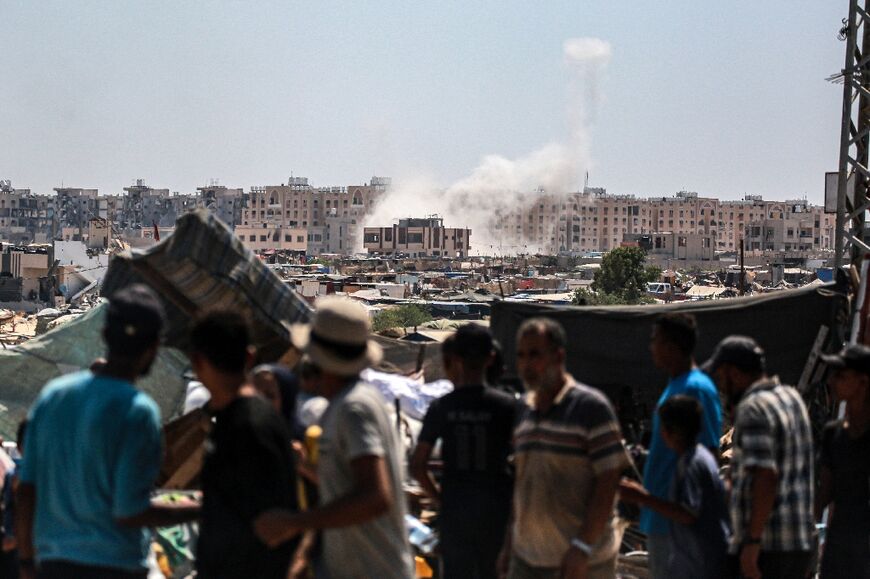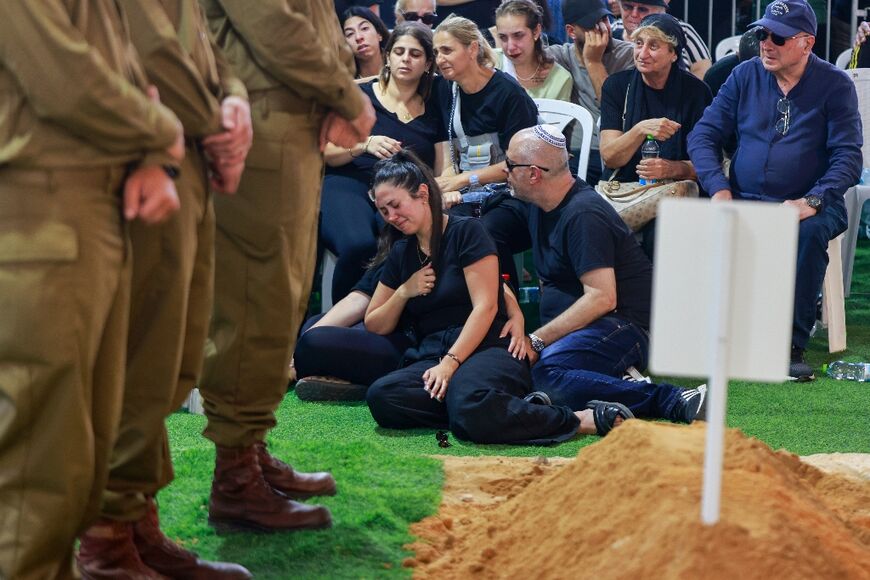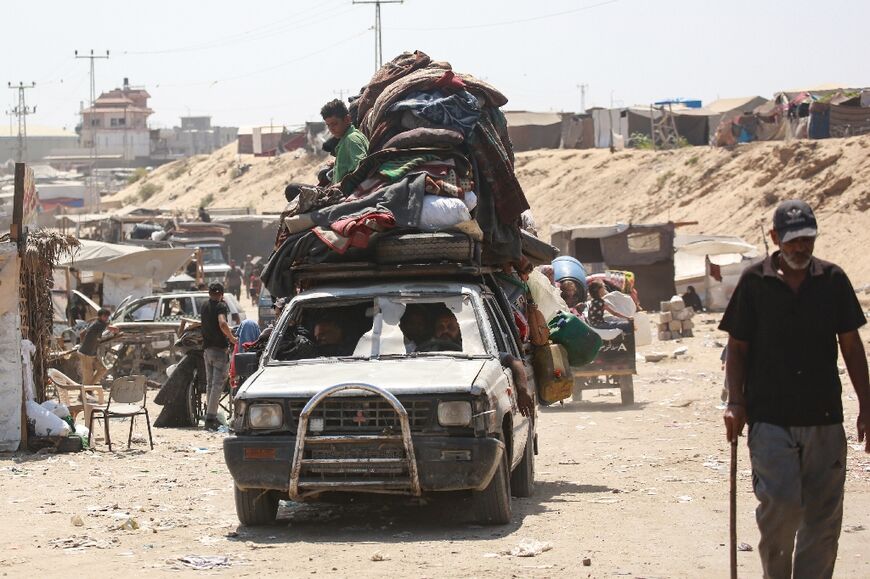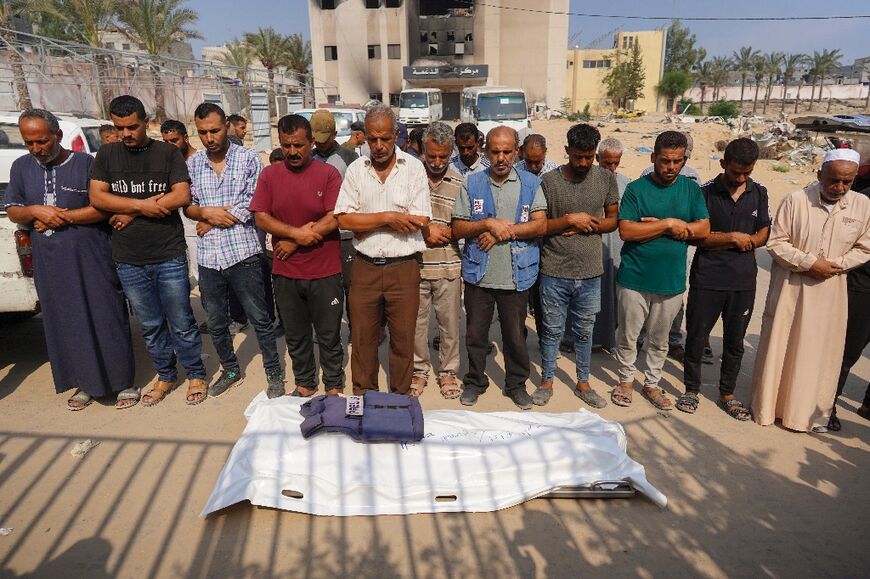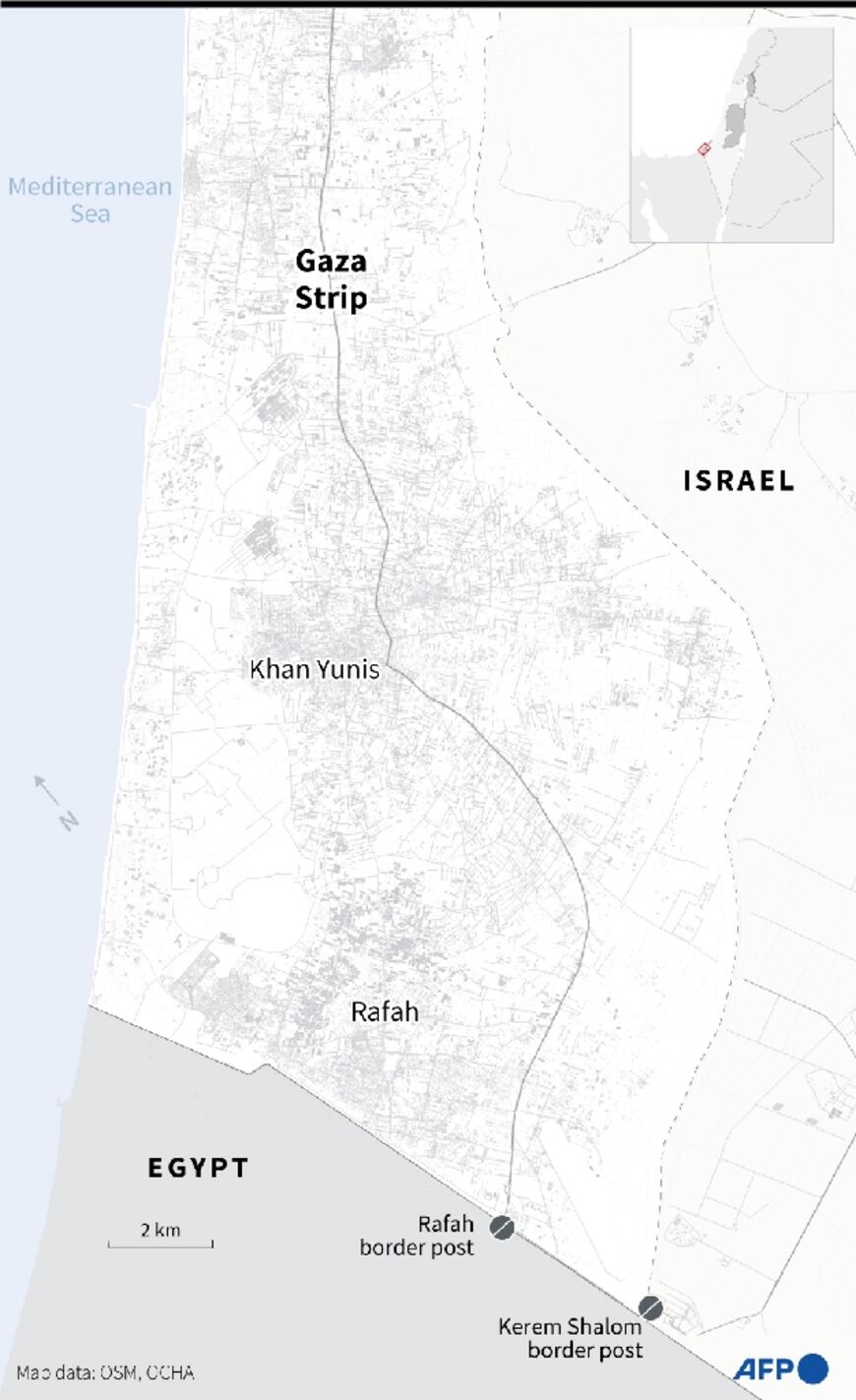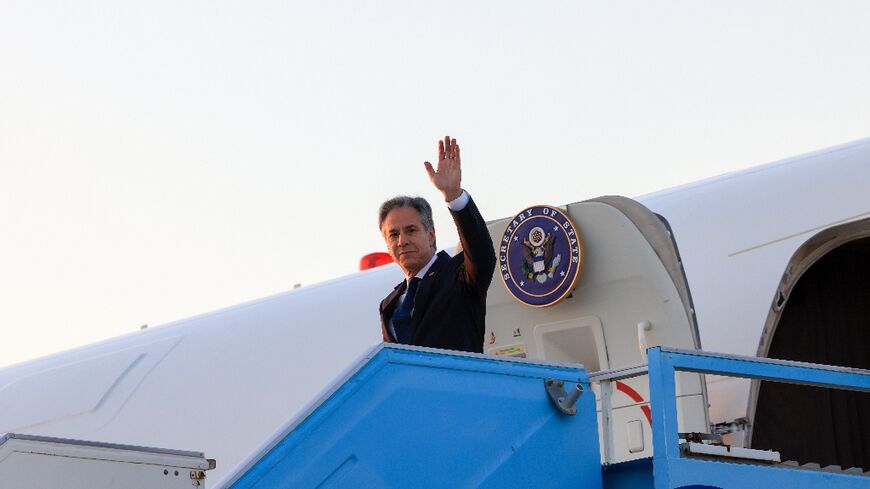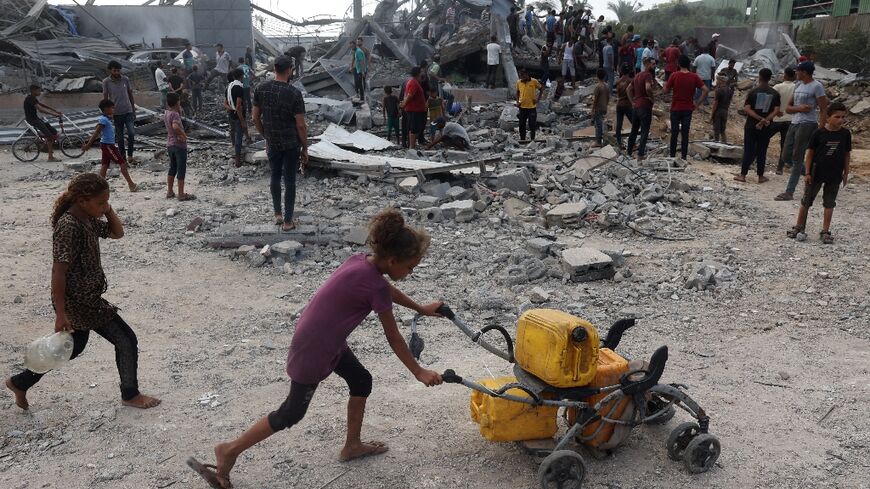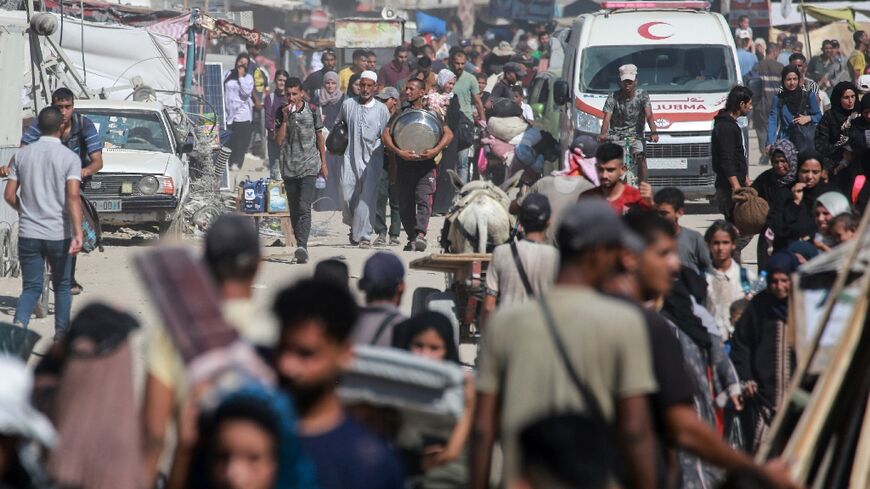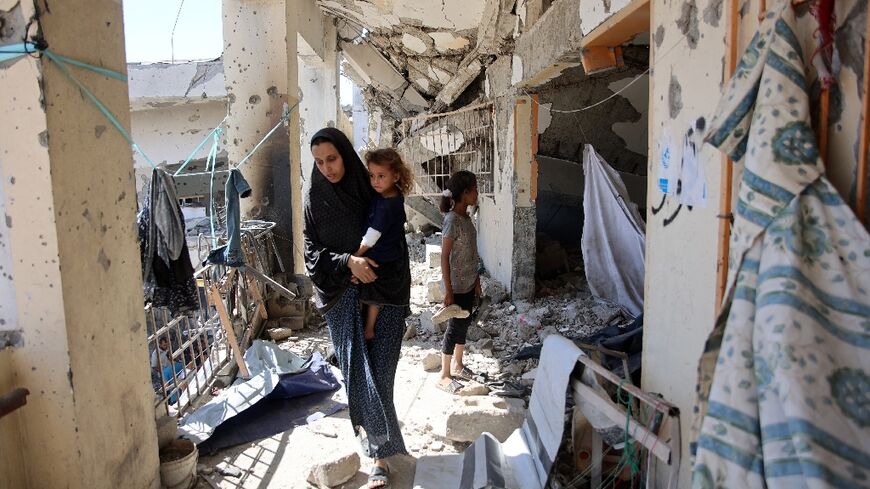Blinken meets Israeli leaders at 'decisive moment' for Gaza talks
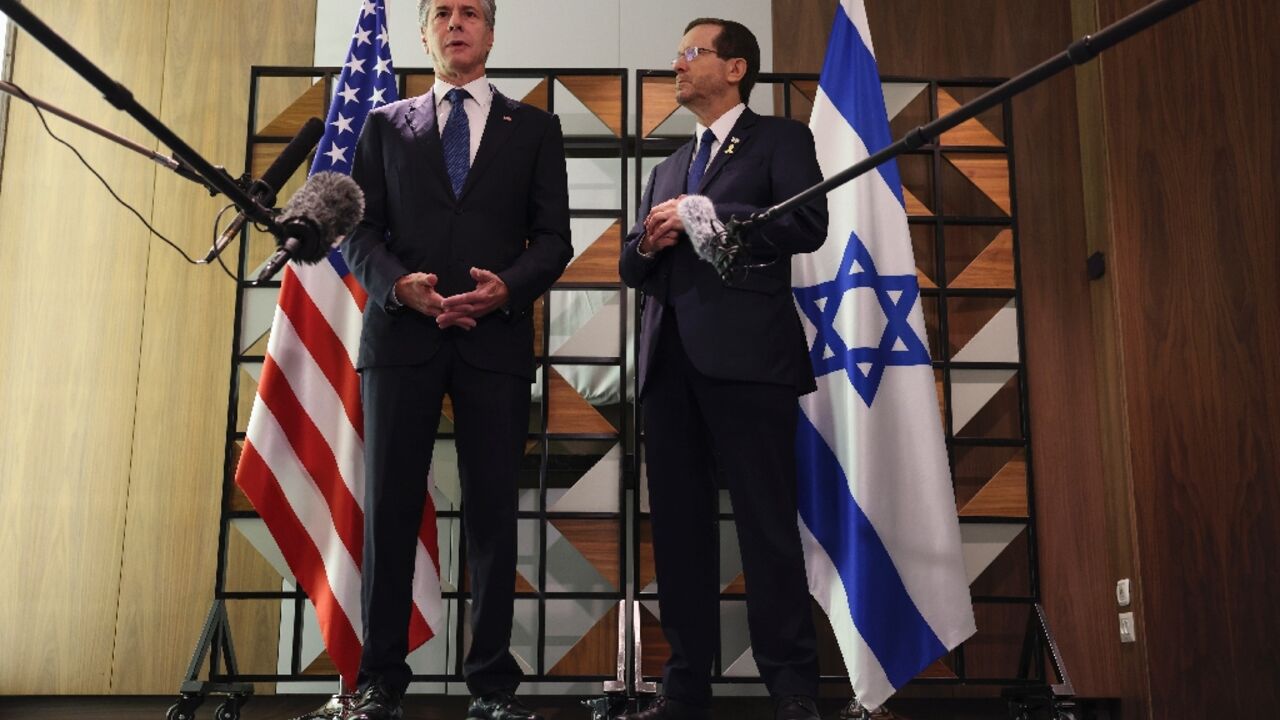
Top US diplomat Antony Blinken on Monday urged Israel and Hamas not to derail negotiations that he said may be a "last opportunity" to secure a Gaza truce and hostage release deal.
Blinken, on his ninth regional tour since Hamas's October 7 attack triggered the war, said he was back in Israel "to get this agreement to the line and ultimately over the line".
"This is a decisive moment -- probably the best, maybe the last, opportunity to get the hostages home, to get a ceasefire and to put everyone on a better path to enduring peace and security," Blinken said as he met Israeli President Isaac Herzog in Tel Aviv.
The US secretary of state later met with Israeli Prime Minister Benjamin Netanyahu in Jerusalem, and is due to travel on Tuesday to Cairo where ceasefire talks are expected to resume this week.
Israel and Hamas blamed each other for delays in reaching a truce accord, which diplomats say could help avert a wider conflagration in the Middle East.
"We're working to make sure that there is no escalation, that there are no provocations, that there are no actions that in any way could move us away from getting this deal over the line, or, for that matter, escalating the conflict to other places, and to greater intensity," Blinken said.
"It is time for it to get done. It's also time to make sure that no one takes any steps that could derail this process."
Months of on-off talks with US, Qatari and Egyptian mediators have failed to produce an agreement.
But the stakes have risen since the late July killings of Iran-backed militant leaders, including Hamas political chief Ismail Haniyeh, and as the humanitarian crisis in the besieged Gaza Strip deepened.
Ahead of talks in Qatar last week, Hamas had called on mediators, rather than holding more negotiations, to implement a framework outlined in late May by US President Joe Biden.
Biden said Sunday that a ceasefire was "still possible" and that the United States was "not giving up", in brief comments to reporters.
- Trading blame -
After the Qatar meeting, the United States had submitted what mediators called a "bridging proposal", which Hamas on Sunday said "responds to Netanyahu's conditions" and includes terms that the Palestinian group would not accept.
Hamas insisted on "a permanent ceasefire and a comprehensive withdrawal from the Gaza Strip", saying Netanyahu wanted to keep Israeli forces at several strategic locations.
It mentioned Netzarim junction, which sits between northern and southern Gaza, as well as the Rafah crossing and the Philadelphi corridor on the Hamas-ruled territory's border with Egypt, which Israel sees as important for preventing the flow of weapons.
Netanyahu was "fully responsible for thwarting the efforts of the mediators", the Palestinian movement said in a statement.
Israeli opposition leader Yair Lapid, in a post on social media platform X, called on Netanyahu to "not miss this opportunity" and "bring them back".
Western ally Jordan, hostage supporters protesting in Israel, and Hamas itself have called for pressure on Netanyahu in order for an agreement to be reached.
On Sunday Netanyahu reiterated that Hamas "remains obstinate" and must be pressured, a day after his office said Israeli negotiators had expressed "cautious optimism" about reaching a deal.
US, Qatari and Egyptian mediators also reported progress.
Far-right members crucial to the prime minister's governing coalition oppose any truce.
- Tel Aviv blast -
The October 7 attack on southern Israel resulted in the deaths of 1,198 people, mostly civilians, according to an AFP tally of Israeli official figures.
Vowing to destroy Hamas, Israel's military campaign in Gaza has killed at least 40,099 people, according to the territory's health ministry, which does not give details of civilian and militant deaths.
Out of 251 hostages seized during Hamas's attack, 111 are still held in Gaza, including 39 the military says are dead. More than 100 were freed during a one-week truce in November.
The plan announced by Biden at the end of May would freeze fighting for an initial six weeks as Israeli hostages are exchanged for Palestinian prisoners in Israeli jails and humanitarian aid enters Gaza.
As efforts towards a long-sought ceasefire continued, so did the violence in Gaza but also along the Israel-Lebanon border where Israeli forces and Hamas's Iran-backed ally Hezbollah have traded near-daily fire throughout the war.
The Lebanese health ministry said an Israeli strike killed two people in the country's south, while Hezbollah claimed attacks on troops and military positions in northern Israel, including with drones.
In southern Gaza, mourners gathered on Monday in Khan Yunis for the funeral of photojournalist Ibrahim Muhareb who was killed the day before, an AFP correspondent said.
The Committee to Protect Journalists advocacy group has said more than 100 Palestinian media workers have been killed by Israeli forces during the war.
Israeli police said a blast in Tel Aviv late Sunday -- shortly after Blinken landed -- was a "terror attack" that wounded one person. The force had earlier reported that the explosion killed one person, who Israeli media said was the suspected assailant.
burs-ami/dr


